Cosmology
Latest about Cosmology
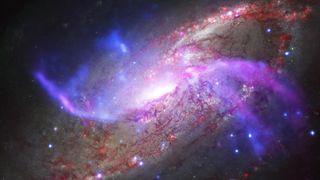
One of the universe's biggest paradoxes could be even weirder than we thought, James Webb telescope study reveals
By Ben Turner published
New James Webb Space Telescope results have revealed that there may not be a Hubble tension after all. But contradictions within the findings point to a deeper mystery.
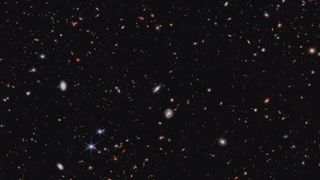
Early galaxies weren't mystifyingly massive after all, James Webb Space Telescope finds
By Charles Q. Choi published
'The bottom line is, there is no crisis in terms of the standard model of cosmology.
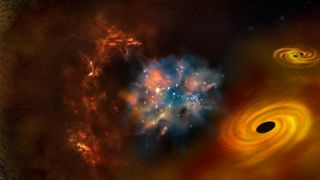
The universe had a secret life before the Big Bang, new study hints
By Andrey Feldman published
The secrets of black holes and dark matter could lie before the Big Bang, a new study of "bouncing" cosmology hints.
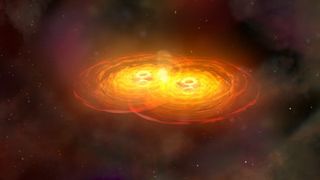
Gravitational waves hint at a 'supercool' secret about the Big Bang
By Robert Lea published
Scientists might be on track to revealing new facets of physics.
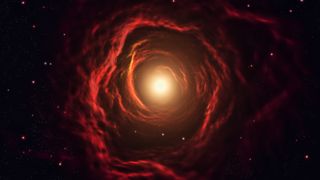
Huge cosmological mystery could be solved by wormholes, new study argues
By Andrey Feldman published
The universe is expanding at an ever accelerating rate — and tiny wormholes that bore through the fabric of space-time might be to blame, a new study proposes.

Is the James Webb Space Telescope really 'breaking' cosmology?
By Paul Sutter published
While headlines around the world claimed that ancient galaxies discovered by the James Webb Space Telescope were "breaking" our understanding of the Big Bang, the truth is much more nuanced — and much more interesting.
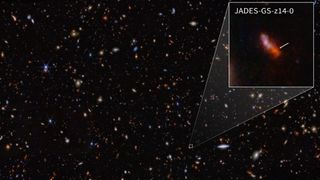
Can the James Webb Space Telescope see galaxies over the universe's horizon?
By Robert Lea published
The James Webb Space Telescope has revolutionized astronomy in just two years of operations, but how can it see a galaxy 33.8 billion light-years away in a universe that is only 13.8 billion years old?
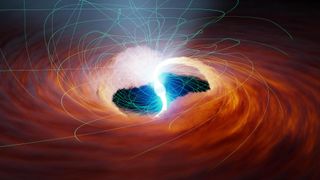
Dead stars sometimes shine again — and gravity itself may be responsible
By Paul Sutter published
Do dead stars glow? A strange gravitational phenomenon could be generating enormous amounts of light around neutron stars, new research suggests.
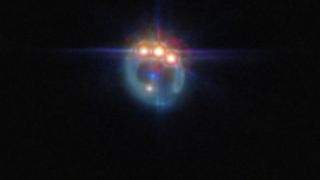
James Webb telescope spies bejeweled 'Einstein ring' made of warped quasar light
By Harry Baker published
New photos from the James Webb Space Telescope show off the bewitching beauty of the warped quasar RX J1131-1231, which is adorned with four bright spots birthed by mind-bending space-time trickery.
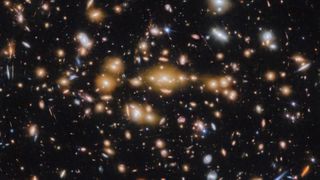
'The early universe is nothing like we expected': James Webb telescope reveals 'new understanding' of how galaxies formed at cosmic dawn
By Ben Turner published
Astronomers using the James Webb Space Telescope have observed five extremely dense proto-globular clusters along a hair-thin arc of glittering stars. The discovery could help them understand how the earliest galaxies formed.
Get the world’s most fascinating discoveries delivered straight to your inbox.
 Live Science Plus
Live Science Plus










